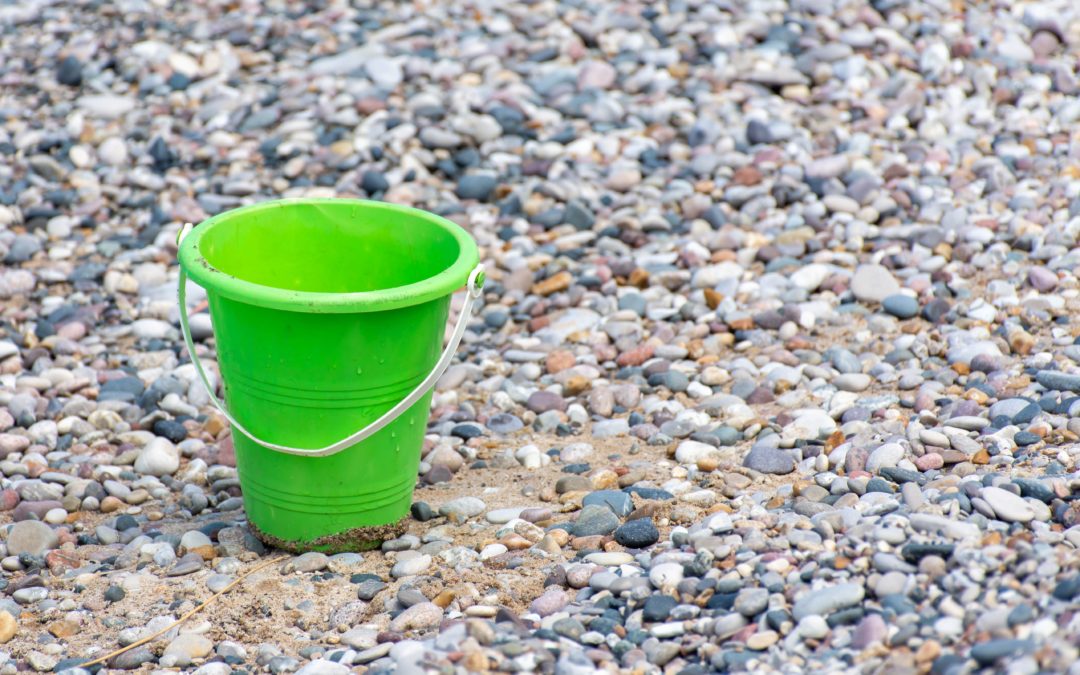Imagine you are a bucket. Water is stress. With each stress event, water is poured into the bucket. Buckets have room to hold the water but if the water keeps being poured in, the bucket will eventually overflow.
We can even experience the amazing phenomena of water tension where there is more water in the bucket than space and the water molecules are holding it all together, but at some point there is too much water, and the bucket will overflow. This is our breaking point. And even as the water level inches towards the top, we begin to experience symptoms of chronic stress.
Luckily, our bucket has an overflow tap at the bottom. We can use coping techniques to mitigate the effects of the stressors in our life. The more readily we can open this overflow tap and relieve some pressure, the easier it is to keep the water (our stress levels) at an optimal level.
We need to identify what is filling the bucket. Stress isn’t just limited to daily demands like taking on a huge workload, deadlines, relationships, money, etc. Stress exists in various forms and our bodies are constantly bombarded with things that trigger a stress response, adding water to our bucket, drop by drop.
SOME COMMON SOURCES OF STRESS:
- Positive or exciting life events
- Lack of sleep or disrupted sleep
- Mental or emotional stress
- Diet
- Over exercising
- Dehydration
- Gut imbalances or chronic infections
- Food sensitivities
- Environmental toxins
The single most effective way to empty that stress bucket is SLEEP. Stress and sleep are intimately interconnected and can sometimes have an inverse relationship (i.e., stress disrupts sleep and poor sleep causes stress).
Sleep is a good indicator of our overall health and mental well-being. We often know that sleep is important, but yet it’s the first thing we sacrifice – we get too busy and need to get things done so we skimp on our sleep.
Studies vary on the subject – but anywhere from 7 to 10 hours is recommended depending on who you talk to. It also probably varies some amount from person to person.
Getting enough sleep could help you maintain your weight – and just the opposite is true also. Not getting enough sleep could contribute to weight gain. When you are tired, you have less energy to exercise, but you also then have less will power and control to make healthier choices throughout the day.
Getting a good night’s sleep helps you think clearer and can improve your memory. You’ll be more alert and able to make better decisions all around.
Good sleep may even help boost your immunity. (More research is still needed on the subject though.)
Be sure your bedroom is a comfortable place for sleeping – cool, dark, and quiet. You can use a fan (which may also double as some white noise) to cool your space. You can also get room darkening blinds to help keep your space conducive to sleep.
Avoid caffeine! Depending on how much caffeine you drink each day or how much caffeine affects you will determine your daily cut off time. For some people, no caffeine after noon is a good choice, for others 4-6 hours before bed is enough.
Keep pets off the bed. This one may be hard, but if you are already sleeping with a partner, an extra body on the bed can be even more disturbing to your sleep. A pet can take up space, move around all night, and depending on the size of the pet – take up a lot of space on the bed.
Avoid electronic devices. The bright screen can mess with your circadian rhythm. Try reading an actual paper book instead of playing on a device at least an hour before bed.
Something as simple as sleep can help you in a lot of areas of your life. You just have to be sure that you understand it’s importance and that you are setting yourself up for a good night’s sleep. Simple does not mean easy!

